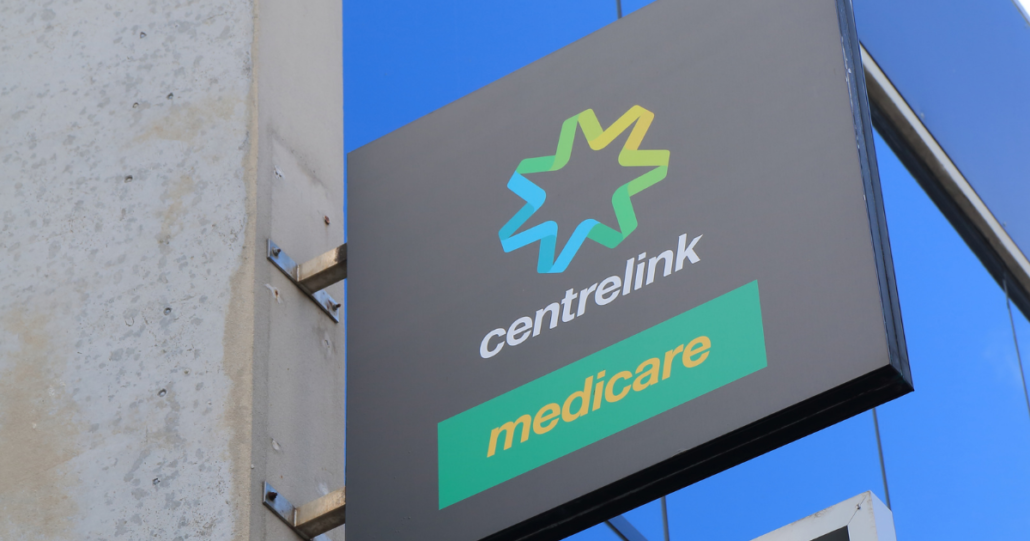


Overview:
As a patient, you rely on your medical practitioner or hospital service to diagnose you correctly and within a timely manner. Suppose your medical condition or illness has been misdiagnosed or you have suffered a delay in being diagnosed by an Australian health practitioner e.g. GP or Health service or a Hospital. In that case, you may be entitled to claim compensation if you have suffered an injury, loss, and damage as a result of that failure to diagnose or delay in diagnosis.
Failure to diagnose
Failure to diagnose situations may involve the patient suffering from a condition or injury and attending a healthcare provider or hospital multiple times. However, the medical practitioner fails to diagnose the patient’s condition or injury.
Another situation where a failure to diagnose may occur is in a trauma setting, where the patient attends a hospital with an injury (such as a fracture). If the hospital staff fail to organise appropriate tests and investigations (for example, an X-ray or CT scan) for the patient, they cannot properly diagnose the injury. In this situation, the patient may then be discharged without a diagnosis or treatment plan, causing further injury to the patient.
Delayed diagnosis
A delayed diagnosis can include failing to investigate certain illnesses such as cancer, sepsis, or infection, in a prompt manner. This can cause the patient to have a longer recovery time, reduced life expectancy, or a terminal outcome.
Usually, in these circumstances, had a diagnosis been made at the earliest opportunity, the patient could have been treated and received a much better clinical outcome.
Failure to diagnose/delayed diagnosis examples include:
To bring a claim for misdiagnosis, delayed diagnosis, or failure to diagnose, you must be able to establish:
What compensation may be awarded if you can establish you have suffered misdiagnosis, delayed diagnosis, or failure to diagnose?
Compensation will never be able to restore an injured person to their pre-injury condition. However, it aims to compensate for the loss you have suffered, including economic and non-economic loss, treatment expenses, and care requirements.
For more information on the damages available in medical negligence claims, see our previous article here.
Compensation may include but is not limited to:
What do you do if you think you have suffered misdiagnosis or delayed diagnosis?
Summary:
You may be entitled to compensation if a health professional has failed to recognise your symptoms or condition and you are subsequently suffering an additional injury.
One download between you and your key to compensation...
Want to fast track the process with our free interactive workbook?
Medical Law © 2020 Privacy & Disclaimer

OVERVIEW:
role of AHPRA in regulating doctors and health practitioners
The Australian Health Practitioner Regulation Agency (AHPRA) is a national board that regulates all registered doctors and health practitioners in Australia.[1]
One of the key roles of AHPRA is to manage and monitor the registration of doctors and health practitioners.
AHPRA plays a role in managing complaints about doctors and health practitioners to ensure safety of patients and protect the public.[2]
significance of a doctor making an undertaking to ahpra
If a complaint or concern about a doctor is reported to AHPRA, the doctor may voluntarily offer to limit their practice in some way. AHPRA will accept an undertaking from a doctor if they believe it to be necessary to protect the public.[3]
For example, if a complaint was made that a psychologist pursued an inappropriate personal relationship with a female patient, the psychologist may make an undertaking with AHPRA not to treat female patients.
A doctor has a legal obligation to adhere to any undertaking they have made to AHPRA.[4]
Some other examples of undertaking doctors might make to AHPRA include:
Significance of a doctor having restrictions or conditions on their registration
If a complaint or concern about a doctor is reported, AHPRA may impose a condition or restriction on a doctor’s registration. This will mean the doctor must do something or must refrain from doing something.[5]
AHPRA may impose a restriction or condition on a doctor’s registration pending an investigation of a complaint or upon conclusion of an investigation. However, it is important to note that a condition or restriction may be made for reasons other than disciplinary proceedings.
Unlike undertakings (which are voluntary), AHPRA may impose a restriction or condition on a doctor’s registration with or without their consent.[6]
Some examples of restrictions or conditions AHPRA may impose on a doctor’s registration to practice:
HOW TO CHECK IF A DOCTOR HAS MADE AN UNDERTAKING TO AHPRA OR HAS RESTRICTIONS ON THEIR REGISTRATION
AHPRA publishes an online registry of all registered doctors and health care providers.
This registry allows anyone to search a registered practitioner’s name and see details of their registration status, including whether they are subject to any undertakings or restrictions.
To look up a doctor or health care provider in the AHPRA registry, please see click here.
To view the list of doctors and health care providers who have undertaken not to practise, please click here.
For tips on how to use the AHPRA registry, please click here.
Please note that the AHPRA registry only contains information regarding registered health care providers. That is, the AHPRA registry will not include persons who provide therapeutic services but are not registered health care providers. For example, some massage therapists or alternative medicine/healthcare providers may not be registered with AHPRA.
To find more information on the role of AHPRA, we recommend reading our other articles, when does AHPRA take action? and AHPRA Reporting 2020/2021: Review of Stats & Complaints Over the Last Year Identified by Specialty.
[1] AHPRA, ‘Who We Are’ (07/02/2022) <https://www.ahpra.gov.au/About-Ahpra/Who-We-Are.aspx>
[2] AHPRA, ‘What We Do’ (10/03/2021) <https://www.ahpra.gov.au/About-Ahpra/What-We-Do.aspx>
[3] AHPRA, ‘How We Manage Concerns: Possible Outcomes’ (26/11/2020) <https://www.ahpra.gov.au/Notifications/How-we-manage-concerns/possible-outcomes.aspx>
[4] AHPRA, ‘How We Manage Concerns: Possible Outcomes’ (26/11/2020) <https://www.ahpra.gov.au/Notifications/How-we-manage-concerns/possible-outcomes.aspx>
[5] AHPRA, ‘How We Manage Concerns: Possible Outcomes’ (26/11/2020) <https://www.ahpra.gov.au/Notifications/How-we-manage-concerns/possible-outcomes.aspx>
[6] AHPRA, ‘How We Manage Concerns: Possible Outcomes’ (26/11/2020) <https://www.ahpra.gov.au/Notifications/How-we-manage-concerns/possible-outcomes.aspx>
One download between you and your key to compensation...
Want to fast track the process with our free interactive workbook?
Medical Law © 2020 Privacy & Disclaimer

OVERVIEW:
Despite being subject to disciplinary restrictions, many health practitioners can continue to practice in Australia. So, how can you find out if your health practitioner is presently disqualified from practise or the subject of disciplinary restrictions?
This article provides you with some case examples of health practitioners practising despite being subject to disciplinary restrictions or suspensions; and tips on how to best research your health practitioner.
2021 CASE EXAMPLES
The following three cases were prosecuted by the Australian Health Practitioners Regulation Agency (AHPRA) in 2021 and are examples of health practitioners continuing to practice despite disciplinary restrictions:
Mr David Drawwater, a QLD Enrolled Nurse, was convicted of continuing to practice despite his registration with AHPRA lapsing.
AHPRA REGISTER SEARCH
The first step to take in your health practitioner research is to perform a search of AHPRA’s online register, which is located here.
To practice in the health profession in Australia, a practitioner must be registered with AHPRA. This applies to all health practitioners in Australia, from doctors, midwives and nurses through to podiatrists, osteopaths and Chinese medicine practitioners.
Last week, we outlined the types of complaints investigated by AHPRA and provided a summary of their 2020/2021 annual report. You can read the full article here.
An online AHPRA register search will identify:
To find your health practitioner on AHPRA's register, you will require at least their surname. To narrow your search, knowing the type of health practitioner and the State or Territory in which they practice will be of assistance.
OTHER FREE ONLINE SEARCHES
In addition to an online AHPRA register search, you can also perform:
RAISE YOUR CONCERNS
If your health practitioner's AHPRA registration is clear of any restrictions/conditions/suspension/ disqualification and you are unable to find much information about them elsewhere online, it may be that your health practitioner has not been the subject of a complaint, disciplinary action or a civil court matter.
However, if you are still concerned about the ability of your health practitioner to treat your medical issue, feel free to ask them questions, such as:
Before any treatment, you should feel comfortable knowing that your health practitioner has the right qualifications and is clear of any disciplinary restrictions. If you feel uneasy or uncertain after conducting your online research, you should always discuss your concerns with your health practitioner. Alternatively, and if circumstances permit, arrange to see a different practitioner for a second opinion.
WHAT IF THEY ARE DISQUALIFIED OR PROHIBITED FROM PRACTICE?
If you have found out after a procedure/treatment that your health practitioner was not appropriately qualified and/or acted outside of the scope of any disciplinary restrictions as outlined on the AHPRA register, then a complaint should be made to AHPRA about that practitioner. Visit this link to our recent article for further information on AHPRA complaints.
If you have suffered injury, loss or damage as a result of treatment by an unregistered, restricted or suspended health practitioner, then you should seek legal advice immediately. We can help, just click here.
One download between you and your key to compensation...
Want to fast track the process with our free interactive workbook?
Medical Law © 2020 Privacy & Disclaimer

OVERVIEW:
THE AHPRA ANNUAL REPORT
Each year, AHPRA releases a report addressing the number of complaints and actions taken against a range of practitioners subject to AHPRA Registration.
These reports include a review of a number of practitioners, including:
(a) Aboriginal & Torres Strait Islander Health Practitioners;
(b) Chinese Medicine practitioners;
(c) Chiropractors;
(d) Dental practitioners;
(e) Medical radiation practitioners (Sonographers, radiographers etc.);
(f) Medical practitioners;
(g) Nurses & Midwives;
(h) Occupational therapists;
(i) Optometrists;
(j) Osteopaths;
(k) Paramedics;
(l) Pharmacists;
(m) Physiotherapists
(n) Podiatrist; and,
(o) Psychologists.
A full copy of the current report and reports from previous years can be downloaded here.
Within each specialty, the AHPRA Report provides details of:
SUMMARY OF COMPLAINTS BY SPECIALTY
As expected, every medical speciality experiences formal complaints for a number of different reasons.
Upon review of the AHPRA report, we have summarised the most significant reporting of complaints during the 2020/2021 annual year:
WHAT DOES THIS MEAN?
By far, the professions with the most complaints are:
(1) Medical practitioners: with 5.7% of the profession having complaints made against them
(2) Dental practitioners: with 4.1% of the profession having complaints made against them
(3) Chiropractors: with 2.3% of the profession having complaints made against them
(4) Psychologists: with 2.2% of the profession having complaints made against them
This means that these professions are subject to the most complaints due to clinical care, that being the treatment they provide falls below the expected standard of care, and boundary violations, that being transgressions of the practitioner-patient relationship.
COMPLAINTS & AHPRA INVESTIGATIONS AND IMPACT ON MEDICAL NEGLIGENCE
By far, the majority of medical negligence claims are made in relation to clinical care and boundary violations.
Clinical Care
Clinical care refers to the treatment and care provided to a patient by a medical professional or ancillary health care provider. When mistakes are made or care is not provided to the required standard, injury, loss, and damage can occur.
For more on the level of care expected of professionals, see our article titled "4 tips to be successful in your medical negligence claim".
Boundary violations
Boundary violations occur when a practitioner acts outside the practitioner-patient relationship. These violations are often ethical violations that have significant legal consequences for practitioners.
An example of a boundary violation is forming a sexual/intimate relationship with a current or former patient.
Further information on boundary violations can be accessed here: "Do you know the boundaries of a doctor patient relationship".
Both breaches of duty and care and boundary violations are compensable in law if a patient/former patient has suffered injury, loss, and damage, and can establish breach and causation - the requirements of medical negligence.
To find out more on medical negligence damages, see our recent article "4 most common damages in medical negligence claims."
One download between you and your key to compensation...
Want to fast track the process with our free interactive workbook?
Medical Law © 2020 Privacy & Disclaimer

Overview
What Is AHPRA?
The Australian Health Practitioner Regulation Agency (AHPRA) is a regulatory body. They regulate the conduct of all registered health practitioners in Australia and work alongside 15 National Boards to do this.
The primary goal of AHPRA is to protect the health and safety of the public and act in their best interests. The policies and guidelines that AHPRA creates must be met by all registered health practitioners.
What Is a Registered Health Practitioner?
AHPRA maintains a list of all health practitioners that are registered to practice in Australia, which include:
Searching for a Practitioner
AHPRA has a public list of practitioners that have been cancelled, disqualified and/or prohibited from practice.
AHPRA also has a list of practitioners who have agreed not to practice due to previous complaints that have been made about them.
The list of practitioners can be found here.
Healthcare Complaints in Queensland, New South Wales and Victoria (Non-Criminal)
Queensland
In Queensland, contact the Office of the Health Ombudsman (OHO) to make a complaint about a health practitioner or health service.
You can make a complaint through the online complaint form here or phone 133 646.
NSW
In New South Wales, contact the NSW Health Professional Councils Authority on their website here or phone 1300 197 177 or (02) 9879 2200.
Alternatively, you can contact the NSW Health Care Complaints Commission (HCCC) on their website here or phone 1800 043 159 or (02) 9219 7444.
Victoria
Contact the VIC Health Care Complaints Commission (HCCC) on their website here or phone 1300 582 113.
Alternatively, you can lodge a complaint directly to AHPRA.
It is free to make a complaint to any of these services. The OHO/HCCC will listen to your complaint and may commence an investigation.
This can lead to several different outcomes, which include:
Healthcare Complaints (Criminal)
If a healthcare practitioner has engaged in criminal conduct, this should be reported directly to the Police and to AHPRA (instead of going through the OHO or HCCC process).
AHPRA can take immediate action to protect the health and safety of the public.
Why Should a Notification to AHPRA Be Made?
Notifications (complaints) to AHPRA help to protect the health and safety of the public. This ensures that AHPRA and the National Boards are made aware of any threat to public health and safety.
They can act to prevent further problems from occurring in the future.
AHPRA is also entitled to take disciplinary action.
How to Make a Voluntary Notification
Anyone can make a complaint to AHPRA if they are concerned about the behaviour of a health practitioner that they have experienced or witnessed.
The National Law will protect the notifier from liability when they make a notification in good faith. The notifier is able to choose to remain anonymous.
You can make a complaint by using AHPRA’s online portal here or phone 1300 419 495.
It is free to make a notification to AHPRA.
AHPRA will listen to your concerns and provide you with an update when it is possible.
Summary
AHPRA regulates the compliance of Australian health practitioners to ensure that the care they provide to patients is consistent and safe.
If you live in Queensland and are unhappy with the treatment received from a healthcare provider, you can make a complaint to the OHO.
If you live in New South Wales are unhappy with the treatment received from a healthcare provider, you can make a complaint to either the NSW Health Professional Councils Authority or the HCCC.
If you live anywhere else in Australia or are looking to make a complaint about a criminal matter involving a healthcare professional, you can lodge a notification with AHPRA.
For more information, consult with the AHPRA website here.
One download between you and your key to compensation...
Want to fast track the process with our free interactive workbook?
Medical Law © 2020 Privacy & Disclaimer

Overview:
What is the OHO?
The Office of the Health Ombudsman (OHO) manages the complaints made about registered and unregistered health practitioners and health services such as Hospitals.
Upon reviewing the complaint, the OHO may take immediate action to protect the health and safety of the public.
Examples of OHO complaints:
Who Can I Make the Complaint About?
You can make a formal complaint about any health service or professional, both public or private, in Queensland.
This may include:
Why Should an OHO Complaint Be Made?
Complaints are important as it ensures that both the OHO and health service or practitioner are aware of your concerns.
It can assist the OHO in identifying where the health service should improve and prevent further problems from occurring. This means that other members of the public will be protected as well.
A complaint may lead to an explanation, an apology or refund of the cost of the health service.
Disciplinary action may be taken against the practitioner or health service by the OHO or National Board such as APHRA.
How Do I Make an OHO Complaint?
Anyone can make a complaint to the OHO. This may include the patient receiving treatment, their family or friend or any other concerned person.
The complaint may be made in writing through the online complaint form here or over the phone on 133 646.
The OHO may require further written information to assist in understanding your complaint.
The complaint requires no payment of money to start the investigation.
A complaint should address:
A summary of the complaint will be provided to the health service or practitioner for their response. In most cases, the other party will respond to the complaint.
You should be advised of the outcome of your complaint.
Summary
The OHO aims to protect the health and safety of the public. The OHO ensures that health professionals and health services are operating at a competent, safe and professional standard.
If you or someone you know are unhappy with their health care treatment, you are entitled to make a complaint.
Visit the OHO website here.
One download between you and your key to compensation...
Want to fast track the process with our free interactive workbook?
Medical Law © 2020 Privacy & Disclaimer

Earlier this year, we talked about the Australian Government's proposed COVID-19 vaccine indemnity scheme. At the time of the article, there was little information surrounding the scheme and what it would entail.
The Australian Government (Department of Health) has now provided further details on the proposed no fault COVID-19 Vaccine Claim Scheme.
The Australian Government has confirmed the scheme is for those who experience “a moderate to significant” adverse reaction to the COVID-19 vaccine.[1] However, what is considered “a moderate to significant” adverse reaction has not be clarified.
The scheme seeks to provide “quick access” to reimbursement or compensation without having to resort to expensive and “complex legal proceedings.”[2]
The scheme will be funded by the Commonwealth and administered by Services Australia with the assistance of the Therapeutic Goods Administration (TGA).[3]
However, there are a few restrictions on who will be eligible to claim from this scheme.
Firstly, the scheme will only cover costs of injuries of $5,000 and above.[4] Accordingly, claims for less than $5,000 will not be covered by the scheme.
Furthermore, claimants will only be able to claim reimbursement/compensation between $5,000 and $20,000 if:[5]
The Australian Government is yet to advise on the “evidence requirements” for claims over $20,000 (including death) or how such claims will be handled under the scheme.[6]
In addition, the scheme will only apply to COVID-19 vaccines which have been approved by the TGA. Currently, only two COVID-19 vaccines have been approved by the TGA: Vaxzevria
(AstraZeneca) and Comirnaty (Pfizer).[7] However, provisional approval has been granted for Spikevax (Moderna0).[8]
[1] Australian Government (Department of Health), ‘COVID-19 vaccine claims scheme’, Department of Health (webpage, 6 September 2021) <https://www.health.gov.au/initiatives-and-programs/covid-19-vaccines/covid-19-vaccine-claims-scheme>
[2]Hon Greg Hunt MP (Minister for Health and Aged Care), ‘No Fault COVID-19 Indemnity Scheme’ Ministers: Department of Health (media release, 28 August 2021) <https://www.health.gov.au/ministers/the-hon-greg-hunt-mp/media/no-fault-covid-19-indemnity-scheme>
[3] Hon Greg Hunt MP (Minister for Health and Aged Care), ‘No Fault COVID-19 Indemnity Scheme’ Ministers: Department of Health (media release, 28 August 2021) <https://www.health.gov.au/ministers/the-hon-greg-hunt-mp/media/no-fault-covid-19-indemnity-scheme>
[4] Australian Government (Department of Health), ‘COVID-19 vaccine claims scheme’, Department of Health (webpage, 6 September 2021) <https://www.health.gov.au/initiatives-and-programs/covid-19-vaccines/covid-19-vaccine-claims-scheme>
[5] Australian Government (Department of Health), ‘COVID-19 vaccine claims scheme’, Department of Health (webpage, 6 September 2021) <https://www.health.gov.au/initiatives-and-programs/covid-19-vaccines/covid-19-vaccine-claims-scheme>
[6] Australian Government (Department of Health), ‘COVID-19 vaccine claims scheme’, Department of Health (webpage, 6 September 2021) <https://www.health.gov.au/initiatives-and-programs/covid-19-vaccines/covid-19-vaccine-claims-scheme>
[7] Australian Government (Department of Health), ‘COVID-19 vaccine weekly safety report – 09.09.2021’, Therapeutic Goods Administration (webpage, 9 September 2021) < https://www.tga.gov.au/periodic/covid-19-vaccine-weekly-safety-report-09-09-2021>
[8] Australian Government (Department of Health), ‘COVID-19 vaccine weekly safety report – 09.09.2021’, Therapeutic Goods Administration (webpage, 9 September 2021) < https://www.tga.gov.au/periodic/covid-19-vaccine-weekly-safety-report-09-09-2021>
One download between you and your key to compensation...
Want to fast track the process with our free interactive workbook?
Medical Law © 2020 Privacy & Disclaimer

1. WHAT IS NDIS?
The National Disability Insurance Agency (NDIS) is a federal scheme which provides disability support for Australians with permanent and significant disabilities. The scheme was established in 2013 and currently provides “more than $22 billion in funding a year to an estimated 500,000 Australians.”[1]
2. WHO CAN CLAIM UNDER NDIS?
The NDIS provides support to Australians with a permanent and significant disability. The NDIS defines ‘permanent and significant disability’ to pertain to disabilities which are “likely to be lifelong.”[2]
This may include “intellectual, physical, sensory, cognitive and psychosocial” disabilities.[3]
However, there are a few qualifications on who claim NDIS support.[4] To be eligible for NDIS support, an applicant must:
NOTE: Children under the age of 6 with developmental delay may be entitled to “early intervention supports.”[5]
3. HOW DO YOU APPLY FOR NDIS SUPPORT?
Applicants can apply to the NDIS verbally by calling NDIS on 1800 800 110 (Verbal Access Request), or in writing by submitting an Access Request form by post (GPO Box 700, Canberra, ACT 2601) or by email ([email protected]).[6]
An application for NDIS services and funding may need to be supported by relevant evidence. This may include having your treating health professional complete a Supporting Evidence Form.[7]
4. WHAT BENEFITS ARE PAID UNDER NDIS?
The NDIS provides assistance and funding for various aspects of participants lives. This may include funding to facilitate transportation, workplace help, help with domestic chores, home modifications and mobility equipment.[8]
However, the NDIS cannot provide funding for expenses which are covered by another government body/agency, do not relate to the participant’s disability or which relate to day-to-day living costs which are unrelated to the participant’s disability-support needs.[9]
5. DOES CLAIMING NDIS AFFECT YOUR RIGHT TO BRING A COMMON LAW OR STATUTORY CLAIM FOR PERSONAL INJURIES?
There may be circumstances in which a participant in the NDIS is also pursuing compensation/damages in relation to a personal injury claim. This is likely to arise where an injured person suffers a permanent and significant disability as a result of a motor vehicle accident or due to medical negligence.
Where an NDIS participant has a personal injury compensation claim, they may be required to notify the NDIS of their claim.[10] If the participant is paid compensation as a result of their personal injuries claim, they may be required to make a repayment back to the NDIS.[11]
Whether a claimant is an NDIS participant may also be relevant to whether they can claim future expenses (such as medical treatment and support services) as part of their personal injuries claim.[12] This is because it is arguable that the claimant’s future are needs will be met by the NDIS services/supports.[13]
One download between you and your key to compensation...
Want to fast track the process with our free interactive workbook?
Medical Law © 2020 Privacy & Disclaimer

In our most recent article, How Medicare And Centrelink Benefits Affect Medical Negligence Claims, we identify how Medicare and Centrelink benefits impact upon medical negligence claims.
However, it is important to note that there are other benefits that have an impact on medical negligence claims.
OTHER BENEFITS THAT HAVE AN IMPACT ON MEDICAL NEGLIGENCE CLAIMS: -
Do income protection benefits have an impact on medical negligence claims?
YES, those injured in the course of medical negligence may be eligible to obtain income protection benefits through their super fund or other held income protection insurance.
If an injured person is unable to work due to medical negligence, it is likely that their medical negligence claim will include a head of damage for “past economic loss”, which is a figure representing the past loss of income and past loss of superannuation.
If a claim is made for past economic loss and that compensation is paid out at settlement, the injured party may be required to pay back the income protection benefits received in the past in accordance with the income protection policy.
Generally, unless the injured party has purchased income protection insurance (i.e. not through a super fund), most policies will require a pay-back of the income benefits in circumstances where an injured person has been compensated for economic loss sustained during the same period income protection payments were received.
How to calculate the income protection refund?
Generally, income protection will pay a percentage of an injured person’s wage (e.g. 80%). When a past economic loss claim is made for medical negligence, the claim is made for the entire value of the loss.
Therefore, it is expected that after any income protection refund is made, the injured party will retain some compensation for past economic loss and loss of superannuation.
To find out how much is required to be reimbursed for income protection payments, the injured person should: -
- Speak to the income protection insurer to clarify whether they need to pay back the income protection benefits if they obtain compensation for past loss of income
- Obtain a statement from the income protection insurer detailing all income protection payments made under the policy
In some circumstances, the injured party may have obtained income protection from two separate insurers. This can make calculating the reimbursement amount difficult.
Therefore, it is important to be open and upfront about any income protection benefits obtained so any potential reimbursements can be factored into the medical negligence claim when negotiating a resolution.
Do private health insurance benefits have an impact on my medical negligence claim?
YES, if treatment has been obtained for injuries sustained as a result of medical negligence, these expenses will form part of the medical negligence claim as a head of damage called “past medical expenses”.
The compensation received at settlement for past medical expenses cannot be kept by the injured party as this would constitute a double-up of compensation. This means that any expenses paid by the private health insurer in relation to injuries sustained as a consequence of medical negligence must be paid back to the private health insurer.
Upon request, the private health insurer will provide a benefit history statement detailing all benefits received during the injury period that is required to be reimbursed.
If an injured party has received compensation for future treatment expenses, the compensation may affect an injured person’s ongoing entitlements to claim future private health benefits in relation to that injury.
For example, under most private health policies, if compensation is received by the injured person for future surgery at $20,000.00, the injured person would be precluded from obtaining private health benefits in relation to that surgery, as if they received compensation from the medical negligence claim and from the private health insurer this would constitute a double up of compensation.
Do NDIS benefits have an impact on my medical negligence claim?
YES, if NDIS benefits are obtained for injuries sustained as a result of medical negligence, these expenses will form part of the medical negligence claim as a head of damage called “past medical expenses”.
NDIS will provide a statement of benefits detailing expenses that will need to be reimbursed if compensation is obtained for past medical expenses.
If you are in receipt of NDIS benefits as a lifetime scheme member, your solicitor will need to weigh up whether claiming future medical expenses in your medical negligence claim is appropriate in the circumstances.
This is because, if compensation is received for future care and assistance, NDIS cover may cease along with any entitlements to the lifetime scheme membership program as obtain future NDIS benefits would constitute a double up in compensation.
It is therefore vitally important to disclose all information in relation to income protection, private health, and NDIS benefits as these benefits have significant and, in some circumstances, ongoing implications for the injured person.
To read more about medical negligence damages, see our recent blog post: THE 4 MOST COMMON DAMAGED CLAIMED IN MEDICAL NEGLIGENCE MATTERS
One download between you and your key to compensation...
Want to fast track the process with our free interactive workbook?
Medical Law © 2020 Privacy & Disclaimer

Do Medicare & Centrelink affect my medical negligence claim?
YES, past Medicare and Centrelink benefits do have an impact on medical negligence claims.
Compensation received in medical negligence claims may also affect the injured persons ongoing rights and entitlement to Centrelink.
IMPORTANT: -
Do past Medicare charges have an impact on medical negligence claims?
Yes, if treatment and other Medicare benefits such as nursing and home care benefits have been obtained for injuries sustained as a result of medical negligence, these expenses will form part of the medical negligence claim as a head of damage called “past medical expense”.
Do I have to pay back Medicare at the end of my medical negligence claim?
Yes, while expenses paid by Medicare are claimable as a head of damage in medical negligence, the compensation received at settlement for past medical expenses cannot be kept by the injured party as this would constitute a double-up of compensation.
Therefore, the money claimed for past Medicare must go back to Medicare and/or the private health fund.
How do you calculate a Medicare refund?
Upon request, Medicare will issue a Medicare History Statement from the date of injury to the date of request. This statement will detail every expense paid by Medicare over that period.
The injured party will need to tick the box next to treatment that relates to any injuries sustained as a result of the medical negligence. This form is then returned to Medicare.
Following this, Medicare will issue a Medicare Notice of Charge, which provides a total figure to be paid back to Medicare when the matter settles.
If a Medicare Notice of Charge is not available or has expired at the time of settlement, then 10% of the settlement money will be deducted by the Insurer and sent to Medicare.
Medicare will then send a Medicare History Statement to the injured party, upon receipt of the Medicare History Statement, Medicare will determine the charge and withdraw the charge amount and return the balance of the 10% to the injured party.
If there is no Medicare Charge, the full 10% will be returned to the injured party.
Does my past Centrelink benefits have an impact on my medical negligence claim?
Yes, if, as a result of medical negligence, the injured party is unable to work and has obtained a Centrelink benefit, the injured party may need to reimburse Centrelink at the end of the medical negligence claim.
If an injured party is unable to work, their past economic loss will form part of the medical negligence claim as a head of damage called “past economic loss”.
If the injured party is compensated for their past loss of income, they will not be able to keep that compensation and the Centrelink benefit for the same period as this would constitute a double-up of compensation.
How is Centrelink reimbursed?
If a portion of the settlement money relates to past economic loss, Centrelink will be notified and will issue a clearance or charge.
The clearance will advise of any amounts owing to Centrelink for any benefits that are compensation affected.
It is important to note if the injured party has unpaid Centrelink debts (e.g. garnishee or unpaid child support), those debts may be payable from the medical negligence compensation.
If there is an amount to be reimbursed to Centrelink, the insurer will deduct the amount owed to Centrelink from your settlement money.
An insurer is unable to pay out any settlement money until a Centrelink clearance or charge is received. Generally, this process takes between four 4-12 weeks.
If no Centrelink benefits have been claimed over the relevant period, Centrelink will issue a Clearance stating there is no charge and no money will be deducted by the insurer for reimbursement.
Does my medical negligence settlement affect my ongoing rights to Centrelink?
YES, in some circumstances.
If a portion of the settlement money represents a loss of income, an injured worker may be precluded from obtaining Centrelink benefits in the future.
A preclusion period applies irrespective of whether the injured party has previously received Centrelink.
It is important to note; preclusion period may affect entitlements to Pensions and other age benefits.
The injured party will be advised of any Medicare and/or Centrelink reimbursements as well as any Centrelink preclusion periods prior to the resolution of their medical negligence claim.
However, it is important to be open and frank about past Medicare and Centrelink benefits and debts to ensure the claim runs smoothly, and the right amount of compensation is obtained at the resolution of the medical negligence claim.
To read more about medical negligence damages, see our recent blog post: THE 4 MOST COMMON DAMAGES CLAIMED IN MEDICAL NEGLIGENCE MATTERS
Keep an eye out for our next article on medical negligence and the impact of NDIS funding, income protection, and private health!
One download between you and your key to compensation...
Want to fast track the process with our free interactive workbook?
Medical Law © 2020 Privacy & Disclaimer